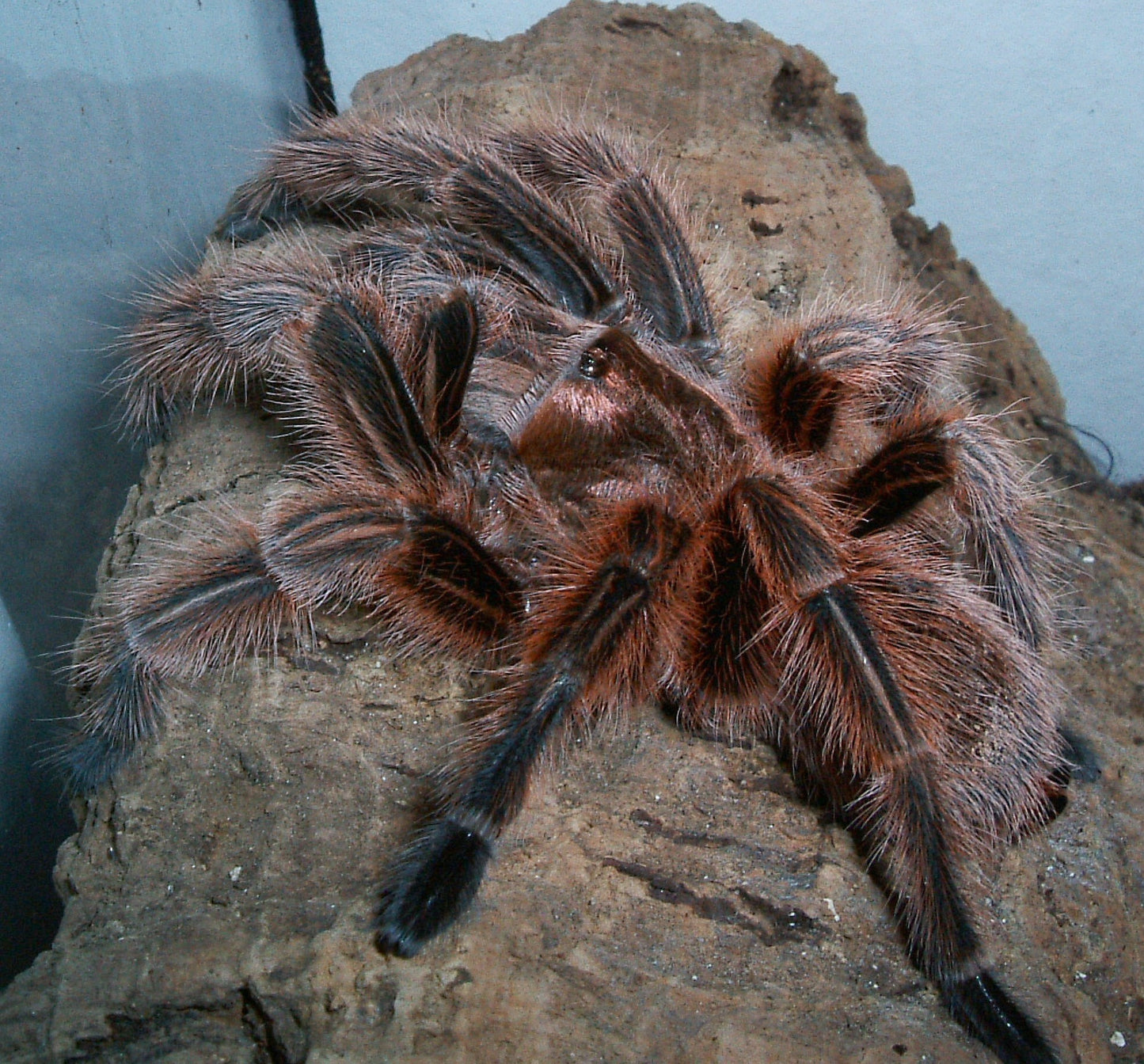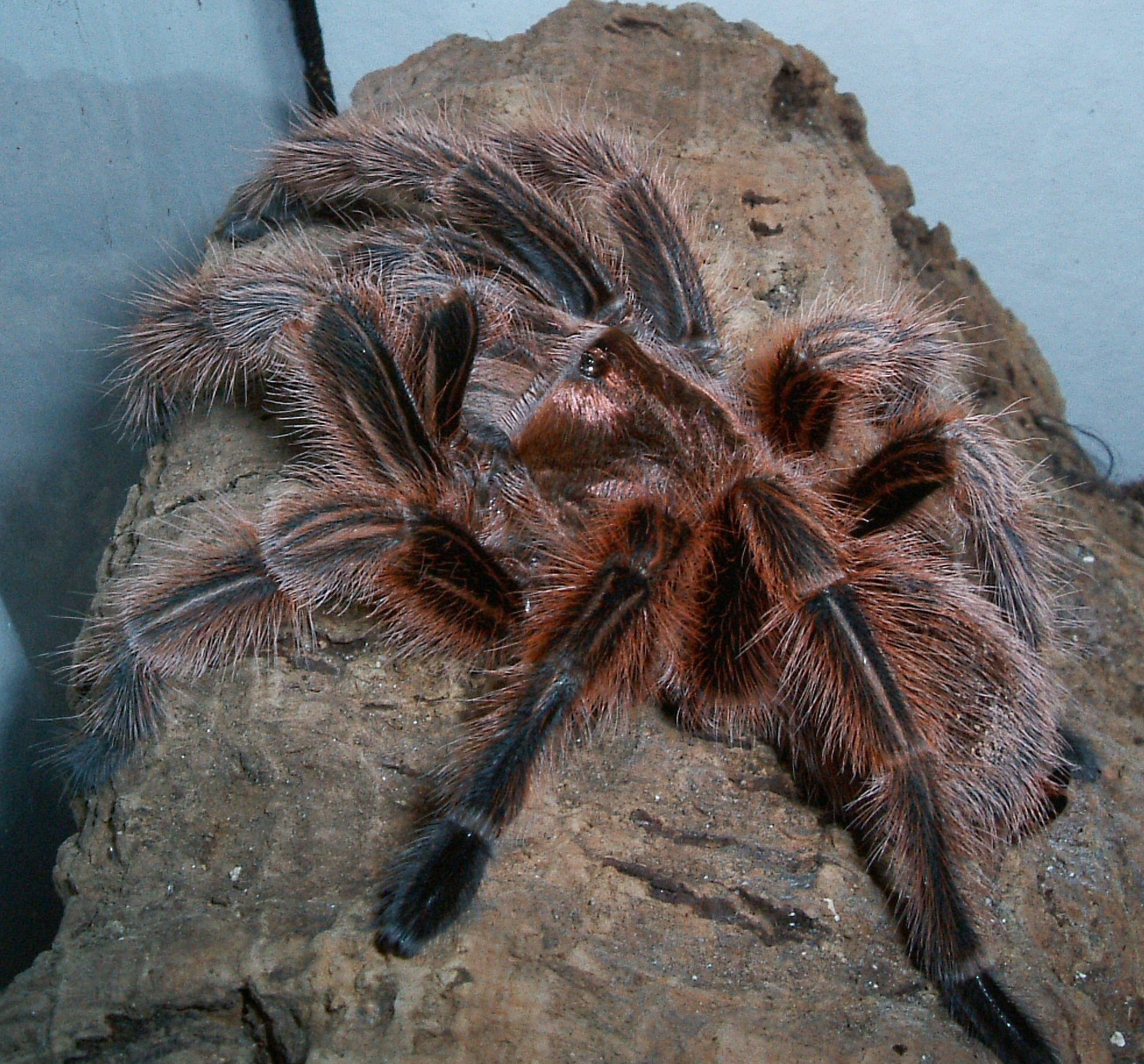Tarantuladen.co.za
Chilean Rose Tarantula (Grammostola rosea RCF)
Chilean Rose Tarantula (Grammostola rosea RCF)
Out of stock
Couldn't load pickup availability
The Chilean Rose Tarantula is one of the most beloved and recognizable species in the hobby — famous for its calm temperament, stunning rose-copper coloration, and beginner-friendly care. Native to the deserts of Chile, this hardy species is both beautiful and incredibly resilient, making it an enduring favorite for new and seasoned keepers alike.
Quick Facts
Common Name: Chilean Rose / Rose Hair (Red Color Form)
Scientific Name: Grammostola rosea (RCF)
Origin: Northern Chile, Bolivia, Argentina
Habitat Type: Semi-desert terrestrial
Size: 4.5–6 inches (11–15 cm) leg span
Lifespan:
- Females: 15–20+ years
- Males: 5–6 years
Temperament: Generally calm and docile, though individuals can be moody
Coloration
Distinct rose-copper to reddish pink carapace (hence “Red Color Form”)
Dark chocolate or grey-brown legs and abdomen
Fine iridescent hairs that shimmer under light
The Normal Color Form (NCF) is more greyish, while RCF glows with warm red tones
The RCF is often considered the more vibrant and photogenic variety of G. rosea.
Housing
Enclosure Type: Terrestrial
Substrate: 3–4 inches of dry substrate (coco fiber or topsoil)
Humidity: 55–65% (keep mostly dry with occasional light misting)
Temperature: 70–78°F (21–26°C)
Decor:
- A simple hide (cork bark, half log, etc.)
- Water dish
- Optional fake or live plant décor
Lighting: Ambient room light only — they dislike bright light
G. rosea enjoys dry conditions — too much moisture can cause stress.
Feeding
Diet: Crickets, roaches, mealworms
Feeding Frequency:
- Slings: 2–3x per week
- Juveniles: Weekly
- Adults: Every 10–14 days
Known for random fasting periods that can last weeks or even months — completely normal.
Why Keep One?
One of the best beginner tarantulas — calm and hardy
Low maintenance and long-lived
Striking red-pink coloration in the RCF morph
Readily available and affordable
Tolerant of wide environmental ranges
Notes
Can have mood swings — docile one day, defensive the next
Handling: Usually possible but always optional — observe temperament first
Venom: Mild, similar to a bee sting
Can fast for long periods — don’t panic if it refuses food
Prefers dry conditions — too much humidity leads to stress or mold
Share

Let customers speak for us
from 5 reviewsLove my new little baby! Thank you 😊

Great service and speedy delivery

It was way beter than I expected. Quick responses to questions. The slings were package so well and it was the most pleasant surprise to see the slings picked out for me. Species I would not order myself because I'm careful of old worlds. I am very satisfied and would recommend tarantula den to anyone looking to purchase tarantulas online.



